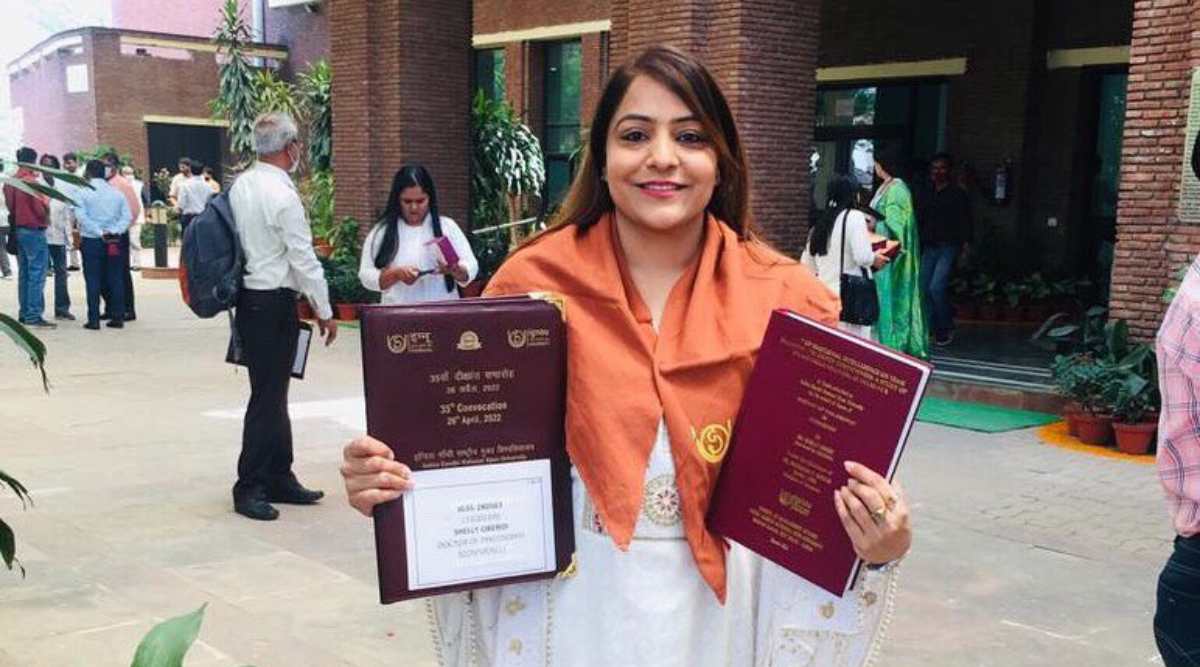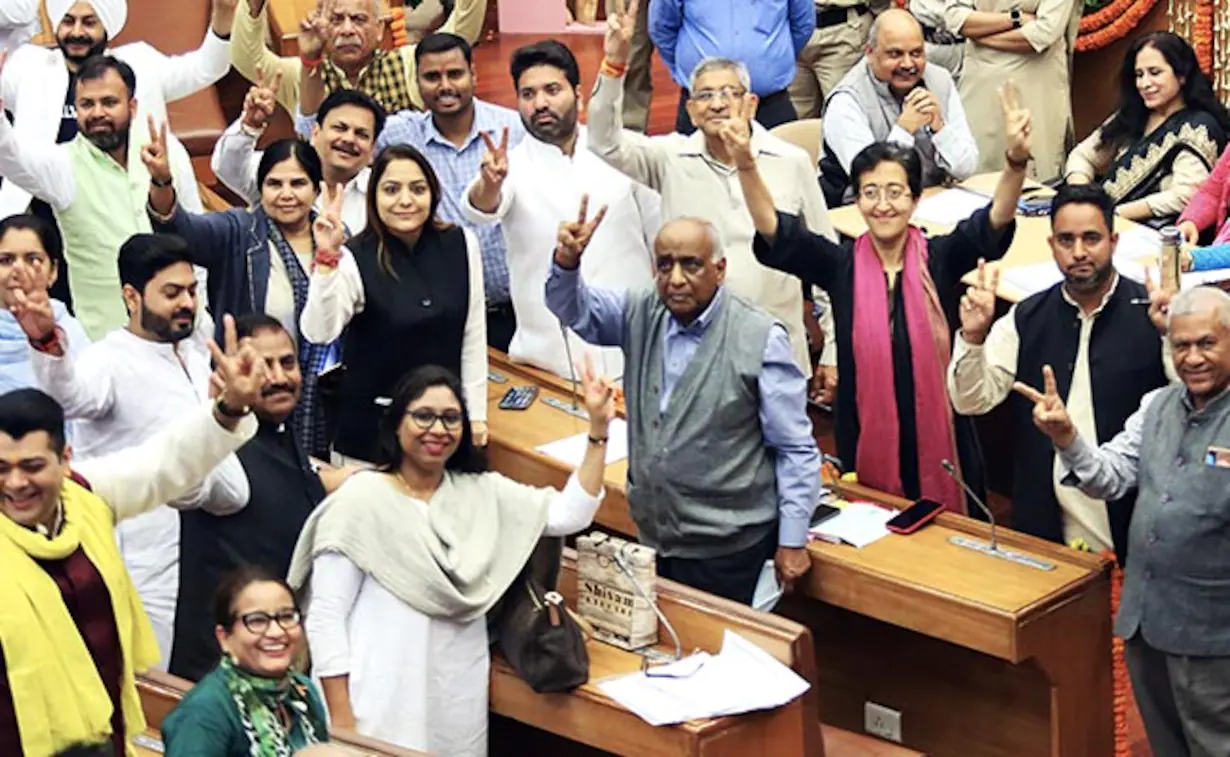Wednesday marked the House’s fourth attempt to pick a mayor after it had previously failed to decide whether the LG-nominated members should be permitted to cast ballots. Shelly Oberoi, a first-time councillor for the Aam Aadmi Party, was chosen as Delhi’s new mayor on Wednesday, putting an end to a months-long spat between the ruling AAP and the opposition BJP over the voting privileges of nominated members.

In the municipal elections held in December, Oberoi won a council seat in the BJP-stronghold ward of Delhi East Patel Nagar. The 39-year-old is a former visiting professor who holds a PhD in management studies from the Indira Gandhi National Open University (IGNOU). Due to a political squabble between the Aam Aadmi Party and Bharatiya Janata Party over voting rights to the House’s 10 nominated individuals, commonly known as aldermen, the last three efforts to elect the mayor, deputy mayor, and six members of the standing committee failed.
The AAP argued that because these individuals were appointed by the Lieutenant Governor, who answers to the Centre, their votes in the all-powerful standing committee might be skewed in the BJP’s favour. In any case, it was predicted that the AAP will gain the positions of mayor and deputy mayor. The civic House met on January 6, January 24, and January 6, following elections on December 4, which the AAP won by ousting the BJP, in order to choose the mayor, deputy mayor, and six members of the standing committee.

The BJP’s Satya Sharma, the meeting’s presider, swore in the aldermen at the previous meeting before calling the elected council members. A high court panel led by Chief Justice of India D.Y. Chandrachud declared that nominated members may not participate in these elections, giving the ruling party’s case a significant advantage. “Nominated members cannot go for election. The constitutional provision is very clear,” the bench observed. The ruling party’s argument was significantly aided by a high court panel headed by Chief Justice of India D.Y. Chandrachud’s finding that nominated candidates could not vote in these elections.
The Municipal House must convene within a month of the conclusion of the civic elections in order to elect the mayor, as required by the Delhi Municipal Corporation Act. This time, the procedure was considerably delayed. A total of 274 legitimate ballots, including those of 10 MPs and 14 MLAs, were cast in the mayoral elections on Wednesday. Nine Congress council members abstained from voting. Any one of the two mayoral candidates might have won with 134 votes.

